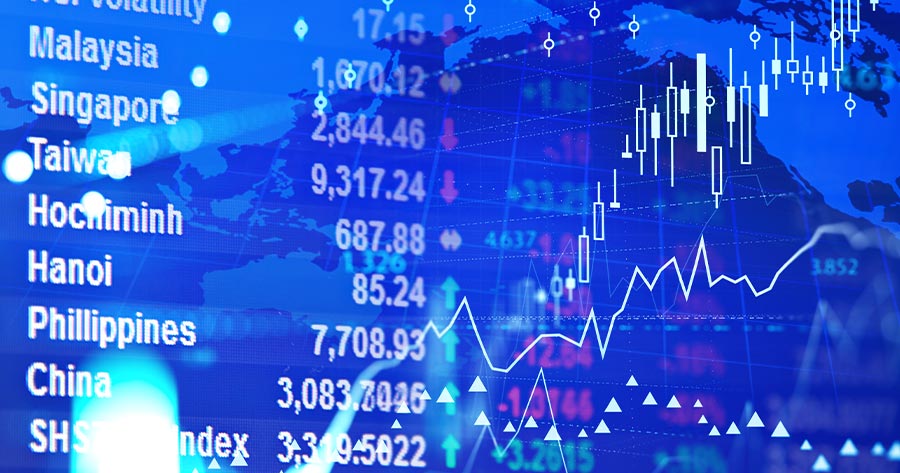On Wednesday morning (21 August, 9:31 AM, GMT+7, Bangkok time), indices in Asia Pacific decreased and were in tandem with the US markets. Meanwhile, investors also digested Japan’s trade data in July.
Japan’s trade numbers for July in 2024 indicated a 10.3% increase in exports compared to the previous year, with imports also seeing a rise of 16.6%. Economists surveyed by Reuters had predicted a higher growth rate for exports at 11.4%, while import growth was anticipated to be at 14.9%.
Japan’s NIKKEI fell by 0.88% to 37,729.77. South Korea’s KOSPI dipped by 0.27% to 2,689.47, and Australia’s ASX 200 declined by 0.5% to 7,957.6.
As for stocks in China, Shanghai’s SSEC lost 0.27% to 2,858.91. Hong Kong’s HSI dropped by 0.8% to 17,370.75, while Shenzhen’s SZI remained unchanged at 8,253.03.
Meanwhile, the US stock markets edged down on Tuesday as the Dow Jones Industrial Average (DJIA) slid by 0.15% to 40,834.97. NASDAQ decreased by 0.33% to 17,816.94, and S&P 500 contracted by 0.2% to 5,597.12. VIX rose by 8.4% to 15.88.
As for commodities, oil prices settled lower on Tuesday due to reduced worries about supply in the Middle East following Israel’s agreement to address issues hindering a ceasefire agreement in Gaza. Additionally, concerns about weakening economic conditions in China also contributed to a decrease in fuel demand, further impacting the decline in oil prices. Brent futures dropped 46 cents or 0.6% to settle at $77.20 a barrel, and the West Texas Intermediate (WTI) slid 33 cents or 0.4% to settle at $74.04 per barrel.
This morning, Brent futures edged down 13 cents or 0.17% to $77.07 a barrel, and the WTI remained unchanged at $74.04 per barrel.
Meanwhile, gold futures climbed by 0.25% to $2,556.9 per Troy ounce.




